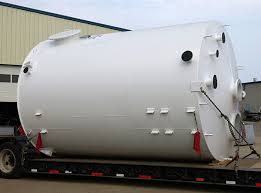TOP 4 ISSUES IN MANUFACTURING
- iqs.com
- Apr 1, 2016
- 3 min read
What's The Big Deal Anyway?
As a skilled quality professional, you have to be prepared when unforeseen setbacks threaten to derail your best efforts. Furthermore, enterprise quality management software can provide you with numerous opportunities to optimize your company’s quality processes at a global scale. Moving forward, you have a clear responsibility to utilize EQMS and other emerging technologies to address the top four issues in manufacturing.
TECHNOLOGY INTEGRATION
Not so long ago, industrial automation technology revolutionized the way your company manufactures products and maintains support services. Long after your products reach consumers, you have a responsibility to ensure that your company continues to build quality products at a reasonable cost. As technology like cloud software and mobile devices continue to become integral to successful manufacturing outcomes, your company has to integrate these tools with legacy quality systems.
Without a doubt, emerging technology complicates manufacturing, which now relies on Web-based software just as much as industrial automation. The question is, how will your company integrate new capabilities as they mature? You should not take seamless integration for granted, since the boundary between manufacturing and IT is more fluid than you may realize. EQMS is key to addressing integration challenges because the solution makes it easier to integrate information.
COMPLEX REGULATIONS
Compliance to ISO 9001 and similar standards is a long-standing pain point for manufacturers; regulatory compliance is another challenge altogether. With ISO 9001-based quality standards, you can expect a reasonable level of predictability as these standards evolve periodically and relatively in-step with one another. Government regulations, by their very nature, do not evolve in the same way; they are unpredictable.
Moreover, your company can improve its ability to manage complex regulations by implementing EQMS. Regulations that affect supply chain management are a good example of where you can achieve quick wins with the right technology in place. Moving forward, regulatory complexity is par for the course in a changing manufacturing industry.
DYNAMIC
CONSUMER DEMANDS
Ultimately, consumers will judge whether or not your company has met their expectations. As manufacturers continue to adapt to dynamic consumer demands, having a holistic quality system at your disposal can help you capture consumer sentiment in real time. Even if your company has not turned to social media to identify quality concerns, consumers who buy your products have turned to social media when quality falls short.

In a global market, consumer demands are more dynamic than ever before. EQMS gives you the capability to build a 360-degree view of high-value consumers and exceed their expectations. Technology integration and a complex regulatory landscape directly impact how well you can satisfy consumer expectations. All of these capabilities are part of a successful manufacturing enterprise.
CYBERSECURITY
Consider how technology integration, complex regulations and dynamic consumer demands interact with one another. There are plenty of ancillary aspects to add to the equation, but cybersecurity is now a business-critical imperative. Not so long ago, the thought that manufacturers would be targeted (or exploited) by cyberattacks was laughable, because data did not reflect increased cybersecurity risk in manufacturing.
Your company’s data assets are the crown jewels of your organization. You access proprietary information daily, and you can no longer afford to ignore basic cybersecurity best practices. Quality data are arguably the most sensitive intellectual property that manufacturers generate in real time. The truth is, a single incident can derail months of progress, if not years. At the very least, EQMS can help you identify critical data assets and manage them in a holistic solution.
Many challenges exist in a global manufacturing industry, but these four are the most critical.







Comments